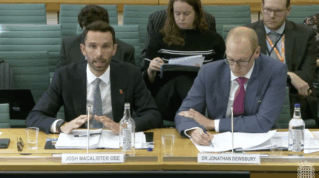Scores more schools have had bids for government repair cash snubbed – prompting fears of a growing backlog of primaries and secondaries left with crumbling estates.
Just 826 projects at 733 schools have been allocated money through the Department for Education’s £450 million Condition Improvement Fund (CIF) this year.
The figures represent an almost 60 per cent fall since 2020-21, when ministers gave 2,104 projects more than £563 million through the scheme.

Meanwhile, almost 22 per cent of greenlit applications came from schools willing to stump up large sums towards the overall cost of the project.
Academy funding consultant Tim Warneford believes this shows the chances of success are stacked in favour of those with the largest coffers.
“[CIF] is supposed to assess the bids on the merit of their need, but clearly, if you’ve got money to invest, you’re going to pick up some marks.
“It’s a race to the bottom. Only the schools with most urgent need are going to be funded.”
The CIF pot is only available to standalone academies or trusts with fewer than five schools wanting to keep a building “safe and in good working order”.
Larger academy chains and council schools get capital funding allocated automatically through a separate route.
Here’s what you need to know about this year’s funding round…
1. Successful bids fall again
In all, 826 projects – lodged by 733 schools – have been awarded CIF grants for, among other things, roof replacements, urgent fire safety works and boiler replacements. A further 40 have been listed by the government as “pending approval”.
The numbers are about 16 per cent down on 2023-24 (1,033) and 60 per cent lower than the levels seen four years ago.
The average cost of a project also rose, from £440,000 in the last round to £489,000, which suggests repairs have become larger and more expensive.
Warneford added: “The school estate is collapsing and this year’s the lowest number of projects awarded. It’s terrible.
“The projects that would have been awarded in previous years would have just gone back into the system – the schools won’t have been able to afford funding them.”
This is despite the National Audit Office warning last summer that 700,000 children are being educated in buildings requiring major fixes. DfE condition data suggested the whole school estate needed about £11.4 billion of repairs in 2020.
Of the 4,363 schools eligible for CIF, just under half (2,016) applied for the money. Only 28.55 per cent of bids were successful, down from just over a third last year.
2. Rise in schools paying up
Government has also published how many projects were successful based on the size of the financial contribution they pledged.
Schools can only get full marks on the funding section of their bid if they pledge to pay more than 30 per cent of the work either out of their own pocket or via a loan, rather than relying fully on grant funding.
DfE stats show 22 per cent of successful applications had a score of six. A further 24 per cent of approvals were given to bids where schools stumped up more than 15 per cent of the project cost.
One in five had a funding source score of 0, which meant the school was putting down a contribution of 4.99 per cent or less.
3. Special schools more likely to be snubbed
Of the 733 schools awarded grants, almost 60 per cent were primaries and a third were secondaries.
Of the 4,363 schools eligible for CIF, 64 per cent are primaries and 24 per cent are secondaries. However, secondary schools operate much larger sites.
Special schools were most likely to be snubbed, as just 22 per cent of those that applied for cash were given the go-ahead. This compares to 34 per cent of primary bids and 43 per cent of secondary bids.
Only 29 per cent of eligible special schools lodged CIF bids – the lowest proportion of any school type.
4. How bids varied by region
Schools in the north east and south west were most likely to be snubbed. Just 20 and 24 per cent of those that lodged applications in the regions were given the go-ahead.
The figure stood at more than 40 per cent in Yorkshire and the Humber, the south east, north west and east Midlands.
Education Secretary Gillian Keegan said government was “continuing to invest in the school estate, so all children are taught in the best classrooms for generations to come”.
She stated the DfE is “ensuring every child gets a world-class education” whether they are in “special or mainstream schools”.















Your thoughts